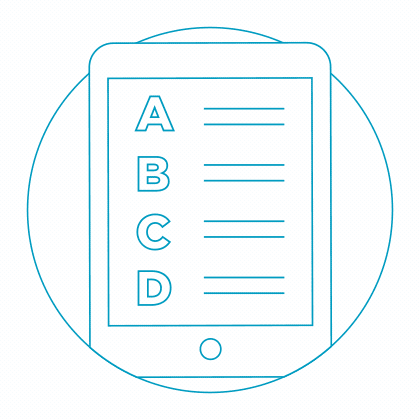Permutations and Combinations - Online Test
Given xyz=30
We have the possible values of x ,y,z are the following triads
1,1,30
1,2,15
1,3,10
1,5,6
2,3,5
First one can have 3!/2! = 3 ways and the remaining four triads can have 3! combinations
Hence total combinations = 3 + 4*3! = 27
To form a four digit number with distinct digits we can use any four digits from the digits 0,1,2,3,4,5,6,7,8,9 without repetition
Since 0 cannot come as the first digit of a four digit number( then it will be a three digit number) the first place can be filled by any of the 9 digits other than 0.
Now we have 9 more digits left and since repetition is not allowed the second place can by filled by any of these 9 digits
Similarly the third and fourth can be filled by any of the 8 and 7 digits respectively
Hence we get the four places can be filled together by different ways.
Total number of courses available=8
Number of courses which are not compulsary=8-2=6
Since two courses are compulsory a student can choose them in different ways.
The remaining 3 courses can be chosen from the 6 non-compulsory courses in
Therefore total number of ways=.=
Since a student can solve each question in 3 different ways - either he can attempt the first alternative ,or the second alternative or he can leave it unanswered.
Hence number of ways in which a student can attempt one or more of the 12 given questions =
Now we can consider a case that the student leave all the 12 given questions unanswered.
The number of ways, in which a student can select one or more questions out of 12 each having an alternative=
for first place we have 20 students, for second we have 19 and for the third we have 18
20P3=20*19*18
If 4n things are to form 4 equal groups then the numbers of ways are
Hence number of ways to divide 52 cards to form 4 groups of 13 cards each =
First we will find the number of three digit numbers (i.e, numbers from 100 to 999)which can be formed using the digits 0,1,2,3,4,5,6,7,8and 9 with repitition allowed .
Now we have the first place can be filled by any of the 9 digits other than 0 and since repetition is allowed the second and third can be filled by any of the ten digits.
Hence the total number of three digit numbers will be =
Now we will consider the case that the number does not have the digit 5.
Now the first place can be filled by any of the 8 digits other than 0 and 5 and since repetition is allowed the second and third can be filled by any of the 9 digits other than 5.
Hence the total number of ways we can form a three digit number with out 5 will be =
Therefore the number of three digit numbers with atleast one 5=
If there are n objects to be arranged in circular order the no of permutations possible=
First we will make the 5 girls around the table and this can be done in , different ways
Now we have 5 places available between these girls and the 5 boys can be seated in these 5 available places in , different ways
Hence the 5 boys and 5 girls can be arranged in ways
First we will find the number of four digit numbers that can be formed using the digits 0,1,2,3,4,5,6,7,8,9 with repetition .
The first place can be filled by any of the 9 digits other than 0, and the second, third and the fourth places each can be filled by any of the ten digits
Hence the total number of ways of forming a four digit number =
Now we will find the number of four digit numbers in which nall the digits are distinct
The first place can be filled by any of the 9 digits other than 0, and the second, can be filled by any of the remaining 9 digits since repetition is not possible
Similarly third and the fourth places each can be filled by 8 and 7 digits respectively
Hence the total number of ways of forming a four digit number with distinct digits b=
The total number of numbers from 1000 to 9999 (both inclusive) that do not have 4 different digits=

